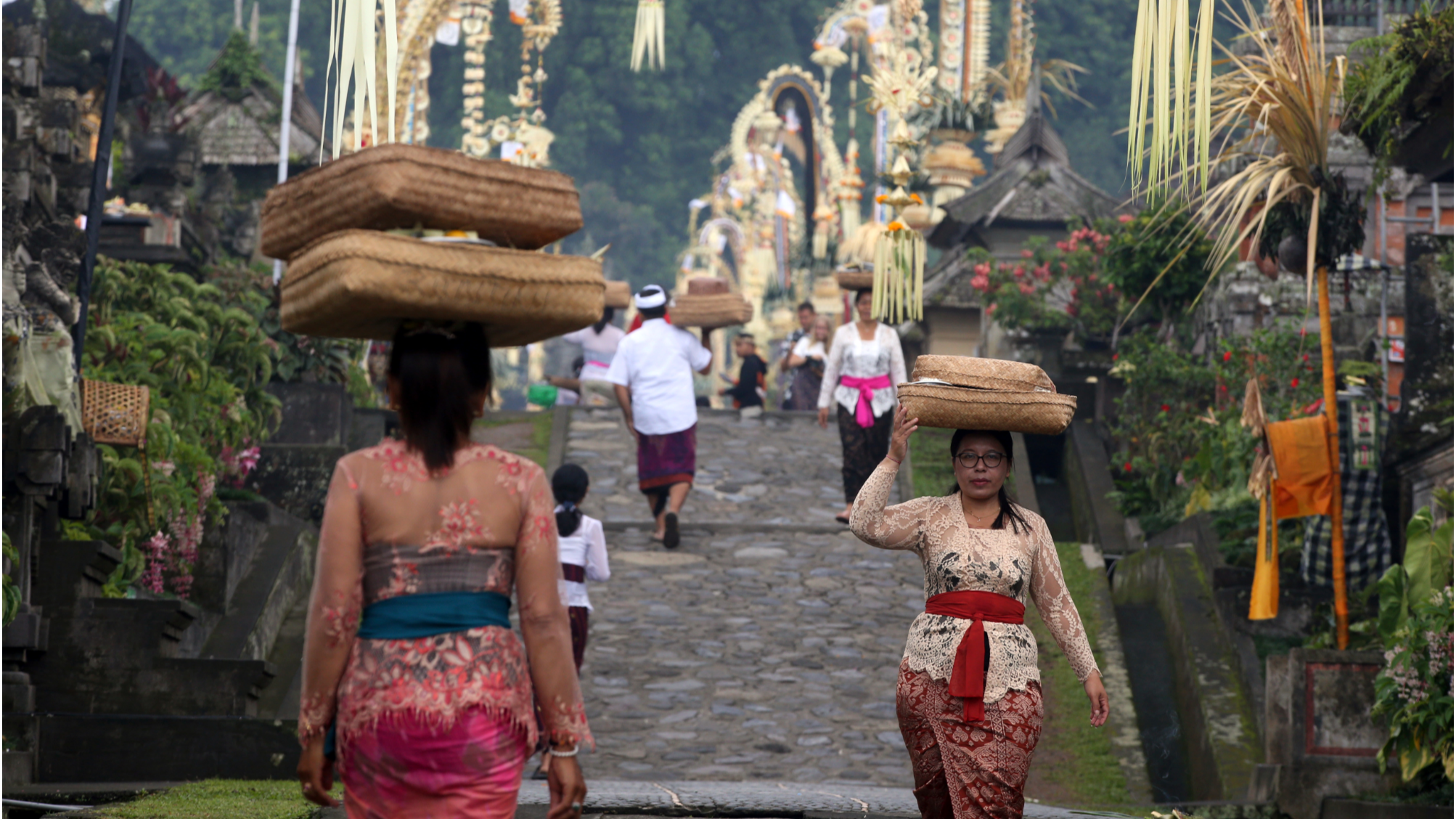
Indonesia needs to promote its small villages as alternative tourist destinations as this will provide much needed revenue and livelihood to local communities, tourism experts said.
Indonesia is the world’s largest archipelago and tourists can explore beyond the resort island of Bali, which has long been the crown jewel of Indonesia’s tourism industry, according to participants in the World Tourism Day forum held in the Trisakti Institute of Tourism in Jakarta on Sept 27.
Representatives from the Indonesian Ministry of Tourism and Creative Economy, Pacific Asia Travel Association, the Association of Tourism Intellectuals, Wonderful Indonesia and other tourism organizations called for the development of local villages into alternative tourist destinations.
READ MORE: Indonesia to reform tourism on tropical island Bali
S. Sugito, director general of development of disadvantaged regions of Indonesia’s Ministry of Villages, Development of Disadvantaged Regions, and Transmigration, has discussed the government’s Desa Wisata (tourism village) program which has been allocated with a 71 trillion rupiah budget this year as most villages have limited revenue sources.
Indonesia launched the Desa Wisata program in 2018 to attract more tourists and boost revenues. The villages of Nglanggeran in Central Java and Penglipuran in Bali were among the recipients of the Best Tourism Village competition organized by the World Tourism Organization (UNWTO) in 2021 and 2023, respectively.
“The key of Desa Wisata is how to make such villages self-supporting as a tourist destination,” Sugito said in his keynote speech at the forum.
The concept of “tourism village” emphasizes local community involvement in managing uniquely local environmental and cultural attractions, the availability of necessary accesses to get to such places, the possibility of visitors staying the night in those locations as they have basic amenities.
Sugito said Indonesia now has 6,584 villages under the Desa Wisata program or nearly 40 percent more than in 2022. He is hoping that the ASEAN Villages Network, which was established after the 42nd ASEAN Summit in Labuan Bajo, Indonesia in May 2023, will support village development in the region.
The network aims to enhance cooperation, knowledge sharing and mutual support for village development among ASEAN member states, focusing on three cooperation areas namely tourist village, digital village and One Village One Product.
“I have always said that there is no poor village. There are only villages that are not yet able to manage their potentials,” Sugito said.
Sugito said that Indonesia’s village heads were sent to China to learn village management which can help boost Indonesian villages’ tourism potential.
Fetty Asmaniati, rector of the Trisakti Institute of Tourism, called for cooperation among educational institutions, the government and community organizations to develop inclusive and sustainable tourism growth. Quoting data from Statistics Indonesia, Asmaniati said the tourism industry contributed 3.9 percent of Indonesia’s gross domestic product in the third quarter of 2023. But she said in the age globalization, tourism plays a role that goes beyond economic goals.
“We believe tourism is not merely about recreation but also about how we can build cross-cultural understanding,” Asmaniati said.
Myrza Rahmanita, head of Trisakti’s master’s degree program, said that students from China and several other countries studying at her school would hopefully boost better understanding of Indonesia among their people back home. She said there is now several Chinese students at Trisakti, including one who is finishing her doctorate degree. Trisakti is home to the China Language Center Indonesia -- a joint project of the institute and China’s Wuxi Institute of Technology.
Veronica (one name), senior lecturer at the tourism school of Bunda Mulia University in Jakarta, said Indonesia has to upgrade the quality of its tourism villages to encourage more tourists to visit villages. Veronica has visited tourism villages and noted that “when the (better developed) villages still got support funding from the local government, they were good. But, later they became less and less good due to poor management”.
She said Penglipuran in Bali is one of the best managed tourism villages in Indonesia. Located in Bangli Regency about 40 kilometers north of the Bali provincial capital of Denpasar, Penglipuran has won several national and international awards.
Mursidi (one name), chief coordinator of the award-winning Nglanggeran tourism village, said any Desa Wisata village needs to encourage more interaction between visitors and local villagers,
“Desa Wisata is not an object but an interaction and an activity,” Mursidi said.
Mursidi said about 9,000 tourists visit their village each month and that local people have united and worked hard to develop their village.
READ MORE: Indonesia eyes Chinese market for inbound tourists
Once an arid area, Nglanggeran has now become a green place where visitors can participate in local cultural events, enjoy area scenic sites, buy locally made souvenirs and savor meals prepared at homestay kitchens.
Chinese visitors to Nglanggeran are increasing in number, along with tourists with other Asian countries, Australia, Europe and others.
“We are highly hopeful that our brothers and sisters from China will come here and not just stay in cities,” Mursidi said.
The writer is a freelance journalist for China Daily.
Prime Sarmiento in Hong Kong contributed to this story


